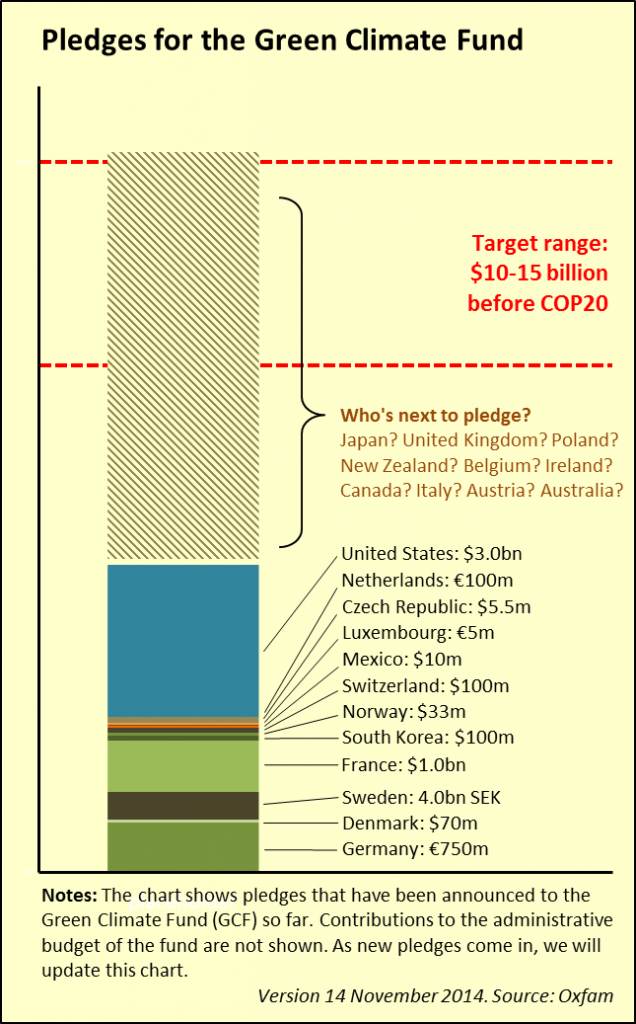Huge week for the climate and Obama
 Hundreds of thousands of activists came together for the People's Climate March in September to demand that government and business leaders take bold action. Photo: Coco McCabe / Oxfam America
Hundreds of thousands of activists came together for the People's Climate March in September to demand that government and business leaders take bold action. Photo: Coco McCabe / Oxfam America
Here’s what happened.
The US made a major announcement with China this week on emissions and the President is expected to make another major announcement on climate change over the weekend at the G20 in Brisbane, Australia. Here are a few key takeaways and things to watch in regard to both announcements:
- The Green Climate Fund pledge, expected at the G20 Summit this weekend, is a bigger deal than it seems. (See graphic below.) The fund is the key to unlocking political gridlock towards reaching a robust international climate deal which we witnessed first-hand in Copenhagen in 2009. Developing countries need cash, and a lot of it, if they are going to avoid an energy pathway that’s dependent on fossil fuels and if they have any chance of preventing catastrophic climate impacts on their people. That cash needs to come first and foremost from the countries that have historic responsibility for the problem and capacity to pay. The administration knows this and they know that they can’t get a meaningful climate deal without it.
- The pledge represents a meaningful commitment and shows that this President is committed to making climate change a key part of his legacy. This pledge of $3 billion is on par with what the US should be putting on the table to represent our “fair share” of contributions to the Green Climate Fund (around 30%.) We have a responsibility to show leadership on this issue as the largest historic emitter of greenhouse gases and this will put pressure on other large emitters, like Japan, the UK, and even countries with more conservative governments, like Australia, to step up. This President cares about climate change and he now has the political space to act.
- The US-China announcement is a huge deal and a feather in the cap of the Obama administration. This bilateral deal could finally get us beyond the elementary school antics of the world’s largest superpowers and biggest emitters pointing fingers at one another in the negotiations. It will most certainly put pressure on all of the other big emitters to put “Intended Nationally Determined Contributions” – the technical term used for national-level emissions reduction goals – on the table by March 2015.
- The US-China emissions reduction commitments are not big enough to get us out of this mess. The fact that the administration hammered out a deal with China is politically meaningful but the level of ambition expressed in both commitments does not measure up to a 2°C pathway and is not commensurate with what the two countries are capable of achieving. The US is likely capable, even under existing executive authority, of reaching a more than 30% reduction below 2005 levels by 2025. That would get us closer to the more than 80% reductions we need by the year 2050. Analysis also suggests that China is capable of ramping up renewables in their energy mix beyond 20% by 2030.
Despite the anti-climate banter we’re hearing this week from newly emboldened Republican members of Congress, I think it’s been a great week for the climate and for this administration.
